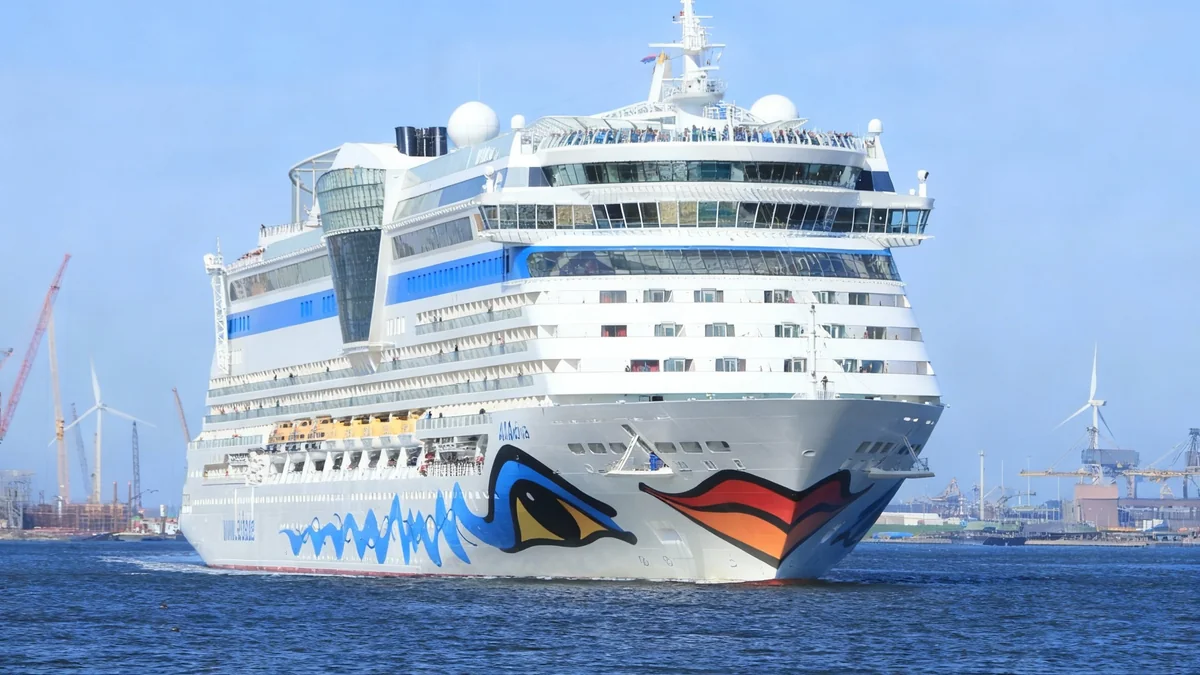A Royal Caribbean cruise ship, the Serenade of the Seas, arrived at PortMiami on Thursday morning after a gastrointestinal illness outbreak affected nearly 100 people during its 13-night voyage. The U.S. Centers for Disease Control and Prevention (CDC) confirmed the illness as norovirus, which impacted at least 94 passengers and four crew members.
Key Takeaways
- The Serenade of the Seas docked in Miami following a norovirus outbreak.
- At least 98 individuals, including 94 passengers and 4 crew, reported illness.
- The ship was on a 13-night trip from San Diego with stops in Mexico, Costa Rica, and Colombia.
- Health officials emphasize handwashing as the primary defense against norovirus.
- Royal Caribbean stated it implemented rigorous cleaning procedures during the voyage.
Details of the Voyage and Illness Reports
The Serenade of the Seas concluded its journey in Miami after departing from San Diego on September 19. The itinerary included several international stops, including ports in Mexico, Costa Rica, and Colombia, before crossing through the Panama Canal to reach Florida. During this extended trip, a significant number of individuals on board began experiencing symptoms consistent with norovirus.
According to official data from the CDC's Vessel Sanitation Program, the outbreak met the threshold for public notification. The agency actively tracks gastrointestinal illnesses on cruise ships and publishes reports when the percentage of affected individuals exceeds a certain level. In this case, the number of sick passengers and crew prompted a formal report and monitoring.
Outbreak by the Numbers
The CDC report specified that 94 out of 1,988 passengers (4.73%) and 4 out of 791 crew members (0.51%) reported symptoms of norovirus during the voyage. This data was collected before the ship's arrival in Miami.
Passenger Accounts and Shipboard Response
Passengers aboard the vessel shared their experiences through social media, describing the sudden onset of symptoms. One passenger posted a video to TikTok, stating they became "violently ill shortly after dinner." This account reflects the typical rapid progression of norovirus symptoms, which often include nausea, vomiting, and diarrhea.
Other guests noted the increased sanitation measures implemented by the crew. Passenger Joshua Pettit described the enhanced protocols in an interview. "Today we noticed they removed the salt and pepper shakers, things like that," Pettit said. He also mentioned that staff were actively sanitizing high-touch areas like the casino and requiring guests to use hand sanitizer before entering the ship's theater.
These actions are standard procedure for cruise lines when an outbreak is detected. The goal is to break the chain of transmission by minimizing contact with contaminated surfaces and promoting hygiene among everyone on board.
Understanding Norovirus in Confined Environments
Health experts explain that norovirus is highly contagious and known for spreading quickly in enclosed spaces such as cruise ships, schools, and nursing homes. Dr. Aileen Marty, an infectious disease specialist, provided context on why these environments are particularly vulnerable.
"Anytime you have crowds and lots of eating environments and people who don’t wash their hands properly after going to the bathroom, then you can easily contaminate surfaces that others will touch," Dr. Marty explained.
She further noted that the virus can easily be transferred when people touch contaminated surfaces and then their mouths. Simple actions like eating finger foods can lead to infection if proper hand hygiene is not observed.
What is the CDC's Vessel Sanitation Program?
The Vessel Sanitation Program (VSP) at the CDC assists the cruise ship industry in preventing and controlling the introduction, transmission, and spread of gastrointestinal illnesses. Cruise ships under its jurisdiction are subject to unannounced public health inspections and are required to report the number of passengers and crew who report symptoms of diarrheal disease before the ship arrives at a U.S. port.
Defining an Outbreak
Dr. Marty also clarified the official definition of an outbreak in such settings. "Anytime you have more than 2% in a crowded area, it’s considered an outbreak and must be reported to the Vessel Sanitation Program at the CDC," she said. The percentage of ill passengers on the Serenade of the Seas significantly exceeded this threshold.
Cruise Line Statement and Prevention Measures
In response to the incident, Royal Caribbean issued a statement reaffirming its commitment to health and safety. The cruise line outlined its standard operating procedures for managing such events.
"The health and safety of our guests, crew, and the communities we visit are our top priority. To maintain an environment that supports the highest levels of health and safety onboard our ships, we implement rigorous cleaning procedures, many of which far exceed public health guidelines."
Health officials and the cruise line both stress the importance of personal hygiene in preventing the spread of norovirus. The most effective methods include:
- Frequent Handwashing: Washing hands with soap and water for at least 20-60 seconds is critical, especially after using the restroom and before eating. Hand sanitizers are not as effective against norovirus as soap and water.
- Surface Cleaning: Regularly cleaning and disinfecting surfaces can help eliminate the virus.
- Isolating the Sick: Individuals who are ill are typically asked to remain in their cabins to prevent further spread.
Upon the ship's arrival in Miami, officials were expected to continue monitoring the situation and may have spoken with disembarking passengers about their experiences. The vessel will undergo a deep cleaning and sanitization before it begins its next voyage.





